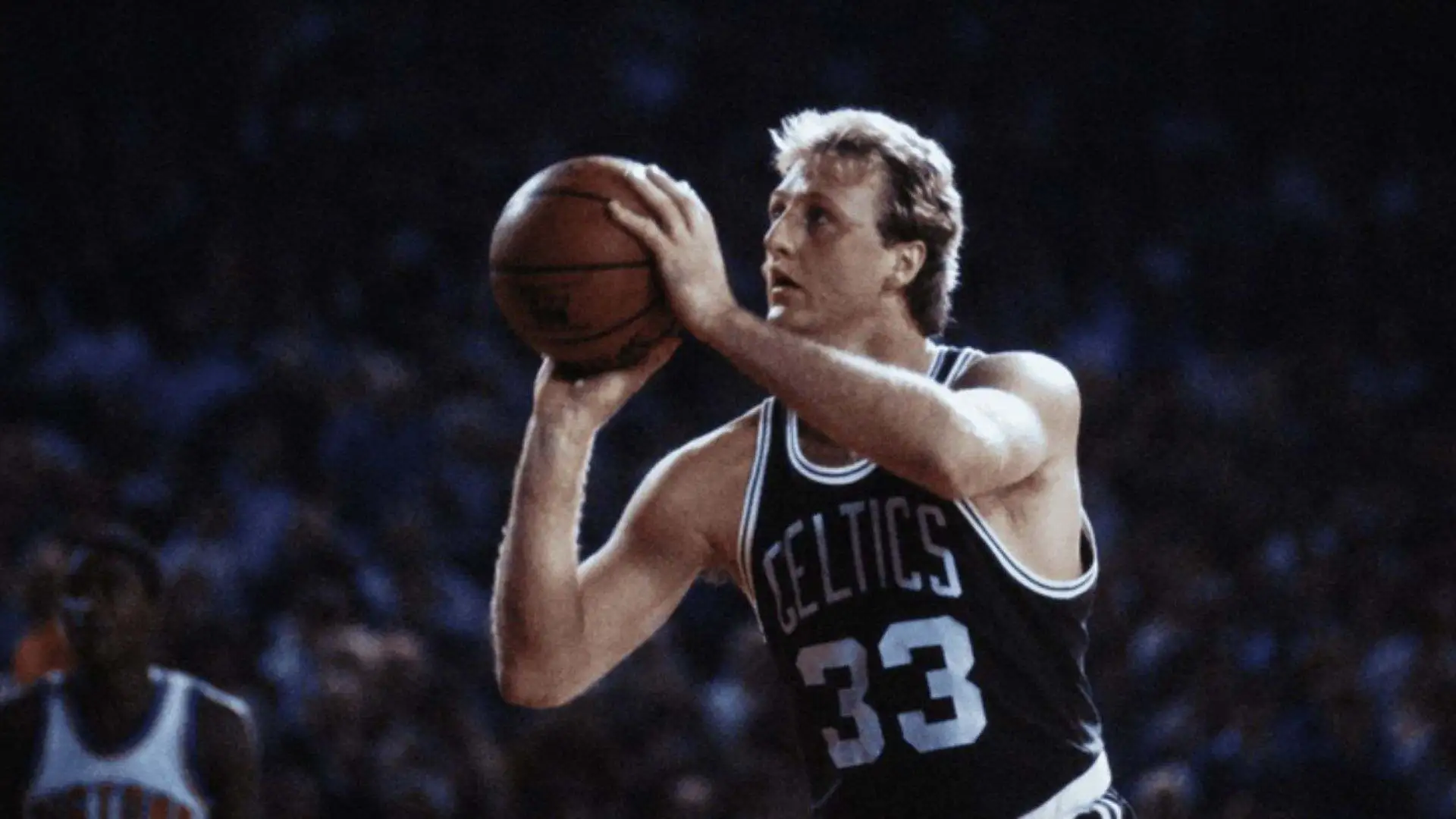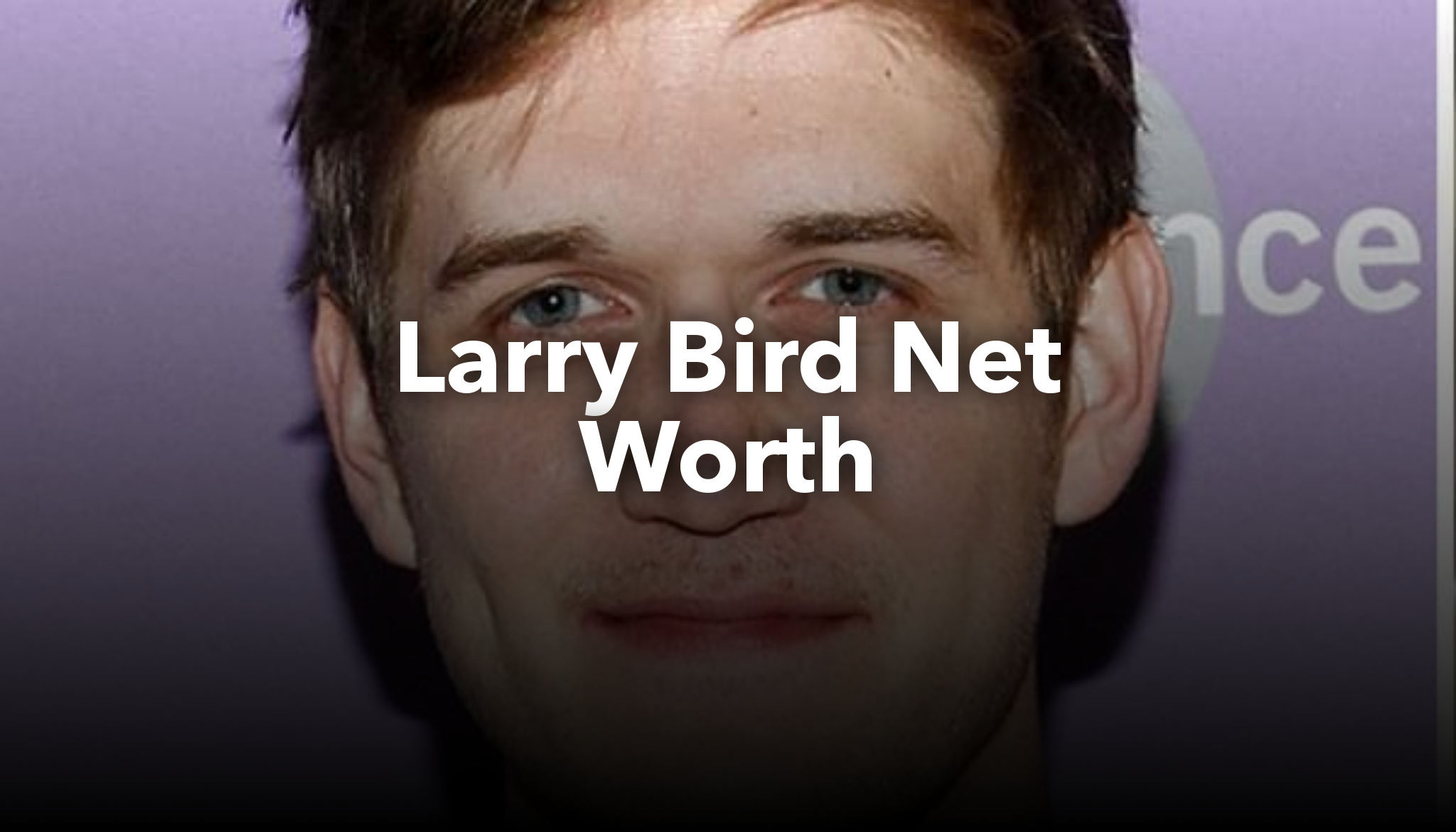Larry Bird net worth is a topic that captures the attention of basketball enthusiasts and financial analysts alike. As one of the most iconic figures in NBA history, Larry Bird's journey from a small-town Indiana boy to a multi-millionaire sports legend is nothing short of remarkable. His financial success extends far beyond his playing career, encompassing various business ventures and executive roles that have significantly contributed to his wealth.
Born on December 7, 1956, in West Baden Springs, Indiana, Larry Bird rose to prominence as a basketball prodigy at Indiana State University before joining the Boston Celtics in 1979. His exceptional skills on the court earned him numerous accolades, including three NBA championships and three MVP awards. However, Bird's financial acumen and business decisions have proven to be equally impressive, shaping his substantial net worth over the years.
This article will delve into the various aspects of Larry Bird's financial empire, exploring how his basketball career, business ventures, and executive positions have contributed to his current net worth. We'll also examine the factors that have influenced his wealth accumulation and provide insights into his financial management strategies. Whether you're a basketball fan or interested in personal finance, this comprehensive analysis of Larry Bird's net worth offers valuable lessons in wealth building and career management.
Read also:Harper Zilmer Age A Comprehensive Guide To Her Life And Achievements
Table of Contents
- Larry Bird Biography
- Personal Data and Biodata
- Basketball Career and Earnings
- Endorsements and Sponsorships
- Business Ventures
- Executive Role with Indiana Pacers
- Investment Strategies
- Charitable Work and Philanthropy
- Financial Lessons from Larry Bird
- Conclusion and Call to Action
Larry Bird Biography
Larry Bird's journey to becoming one of basketball's greatest players began in the small town of French Lick, Indiana. Growing up in modest circumstances, Bird developed his legendary work ethic and basketball skills on outdoor courts, often practicing alone for hours. His exceptional talent earned him a scholarship to Indiana University, though he initially struggled with homesickness and transferred to Indiana State University.
At Indiana State, Bird led the Sycamores to an undefeated regular season and a spot in the 1979 NCAA Championship game against Michigan State, where he faced Magic Johnson in one of basketball's most famous rivalries. Despite losing the championship, Bird's performance caught the attention of NBA scouts, and he was drafted by the Boston Celtics in 1978, though he chose to complete his college degree before joining the team.
Bird's professional career with the Celtics spanned 13 seasons, during which he revolutionized the game with his shooting accuracy, basketball IQ, and competitive spirit. His battles with Magic Johnson and the Los Angeles Lakers helped propel the NBA to new heights of popularity in the 1980s. Beyond his playing career, Bird's influence on the game continued through his coaching and executive roles.
Personal Data and Biodata
| Full Name | Larry Joe Bird |
|---|---|
| Date of Birth | December 7, 1956 |
| Place of Birth | West Baden Springs, Indiana, USA |
| Height | 6 ft 9 in (2.06 m) |
| Weight | 220 lb (100 kg) |
| College | Indiana State University |
| Draft Year | 1978 |
| NBA Career | 1979-1992 |
| Position | Small Forward / Power Forward |
| Nicknames | The Hick from French Lick, Larry Legend |
Basketball Career and Earnings
Larry Bird's professional basketball career was marked by unprecedented success and financial rewards. During his 13 seasons with the Boston Celtics, he consistently ranked among the league's highest-paid players. His annual salary grew significantly throughout his career, starting from $650,000 in his rookie year to over $7 million in his final season.
Key Financial Milestones in His Playing Career
- 1979-1980: Signed initial contract worth $650,000 per year
- 1983: Became one of the first NBA players to earn over $1 million annually
- 1989: Signed a five-year, $25 million contract extension
- 1991-1992: Earned over $7 million in his final season
Beyond his salary, Bird's on-court performance earned him numerous bonuses and incentives. His three NBA championships (1981, 1984, 1986) and three MVP awards (1984-1986) came with significant financial rewards. According to NBA records, Bird's total earnings from his playing career exceeded $25 million, a remarkable achievement for his era.
Endorsements and Sponsorships
Larry Bird's marketability extended far beyond the basketball court, making him one of the most sought-after athletes for endorsements during the 1980s. His wholesome image, combined with his exceptional skills, made him an ideal brand ambassador for various companies.
Read also:What Happened To Joel Michael Singer The Full Story Behind His Firing
Major Endorsement Deals
- Converse: Bird's long-term partnership with Converse resulted in the creation of the iconic "Weapon" sneaker line, which became one of the best-selling basketball shoes of its time.
- McDonald's: Featured in numerous national advertising campaigns throughout the 1980s.
- General Mills: Starred in Wheaties commercials, becoming one of their most recognizable spokesmen.
One of Bird's most famous endorsement moments came in the 1993 McDonald's commercial featuring his famous "Nothing but Net" challenge with Michael Jordan. This commercial not only showcased his competitive spirit but also demonstrated his ability to maintain relevance even after retirement.
Business Ventures
Following his playing career, Larry Bird demonstrated remarkable business acumen through various successful ventures. His most notable business achievement was his ownership stake in the Indiana Pacers, which he acquired in 1997. Bird invested $5 million in the team during its transition from the ABA to the NBA, a decision that proved extremely profitable.
Key Business Investments
- Indiana Pacers Ownership: His initial investment grew significantly as the team's value increased.
- Real Estate: Developed several successful commercial properties in Indiana.
- Restaurant Chain: Invested in a regional sports bar franchise that expanded across multiple states.
Bird's business success can be attributed to his careful investment strategy and willingness to seek expert advice. He worked closely with financial advisors and maintained a conservative approach to risk management, ensuring the long-term sustainability of his investments.
Executive Role with Indiana Pacers
After retiring as a player, Larry Bird transitioned into an executive role with the Indiana Pacers, serving as President of Basketball Operations from 2003 to 2017. This position not only provided him with a substantial salary but also allowed him to influence the franchise's direction and success.
Impact on Team's Financial Performance
- Improved team's market value by implementing strategic player acquisitions
- Increased ticket sales through successful team building
- Negotiated lucrative sponsorship deals for the franchise
During his tenure, Bird's leadership helped increase the team's overall value from approximately $250 million to over $1 billion. His annual compensation as team president reportedly exceeded $2 million, contributing significantly to his net worth.
Investment Strategies
Larry Bird's approach to wealth management and investment demonstrates a careful balance between risk and security. His financial advisors implemented several key strategies that have helped preserve and grow his wealth over the years.
Core Investment Principles
- Maintain a diversified portfolio across various asset classes
- Prioritize long-term investments over short-term gains
- Allocate significant resources to real estate investments
- Regularly review and adjust investment strategies
Bird's conservative approach to investment has helped him weather various economic cycles while maintaining steady growth in his portfolio. His financial team emphasizes the importance of maintaining liquid assets while pursuing growth opportunities in stable sectors.
Charitable Work and Philanthropy
Despite his considerable wealth, Larry Bird has remained committed to giving back to his community through various charitable initiatives. His philanthropic efforts primarily focus on youth development and education in Indiana.
Notable Charitable Contributions
- Established the Larry Bird Foundation for youth sports programs
- Donated over $5 million to Indiana State University
- Supported local hospitals and healthcare initiatives
Bird's charitable work not only demonstrates his commitment to social responsibility but also helps maintain his positive public image, which indirectly supports his business ventures and brand value.
Financial Lessons from Larry Bird
Larry Bird's financial success offers valuable lessons for individuals seeking to build and maintain wealth:
- Develop multiple income streams beyond primary career
- Invest in long-term opportunities with growth potential
- Maintain a conservative approach to risk management
- Seek expert financial advice while remaining actively involved in decision-making
- Balance wealth accumulation with social responsibility
These principles have helped Bird maintain his financial stability while continuing to grow his net worth through strategic investments and business decisions.
Conclusion and Call to Action
Larry Bird's net worth, estimated to be around $55 million as of 2023, represents the culmination of a lifetime of hard work, smart financial decisions, and strategic investments. From his early days as a basketball prodigy to his successful career as an executive and businessman, Bird has demonstrated remarkable financial acumen and business sense.
The story of Larry Bird's wealth accumulation offers valuable insights into building sustainable financial success. Whether through his careful investment strategies, successful business ventures, or commitment to giving back to the community, Bird's journey provides a roadmap for achieving long-term financial stability.
We encourage you to share your thoughts on Larry Bird's financial success in the comments below. How has his story inspired your own approach to wealth building? Be sure to explore our other articles on financial management and sports legends for more insights and inspiration. Don't forget to share this comprehensive analysis with fellow basketball enthusiasts and finance enthusiasts who might benefit from these valuable lessons.

